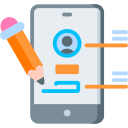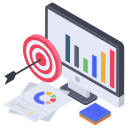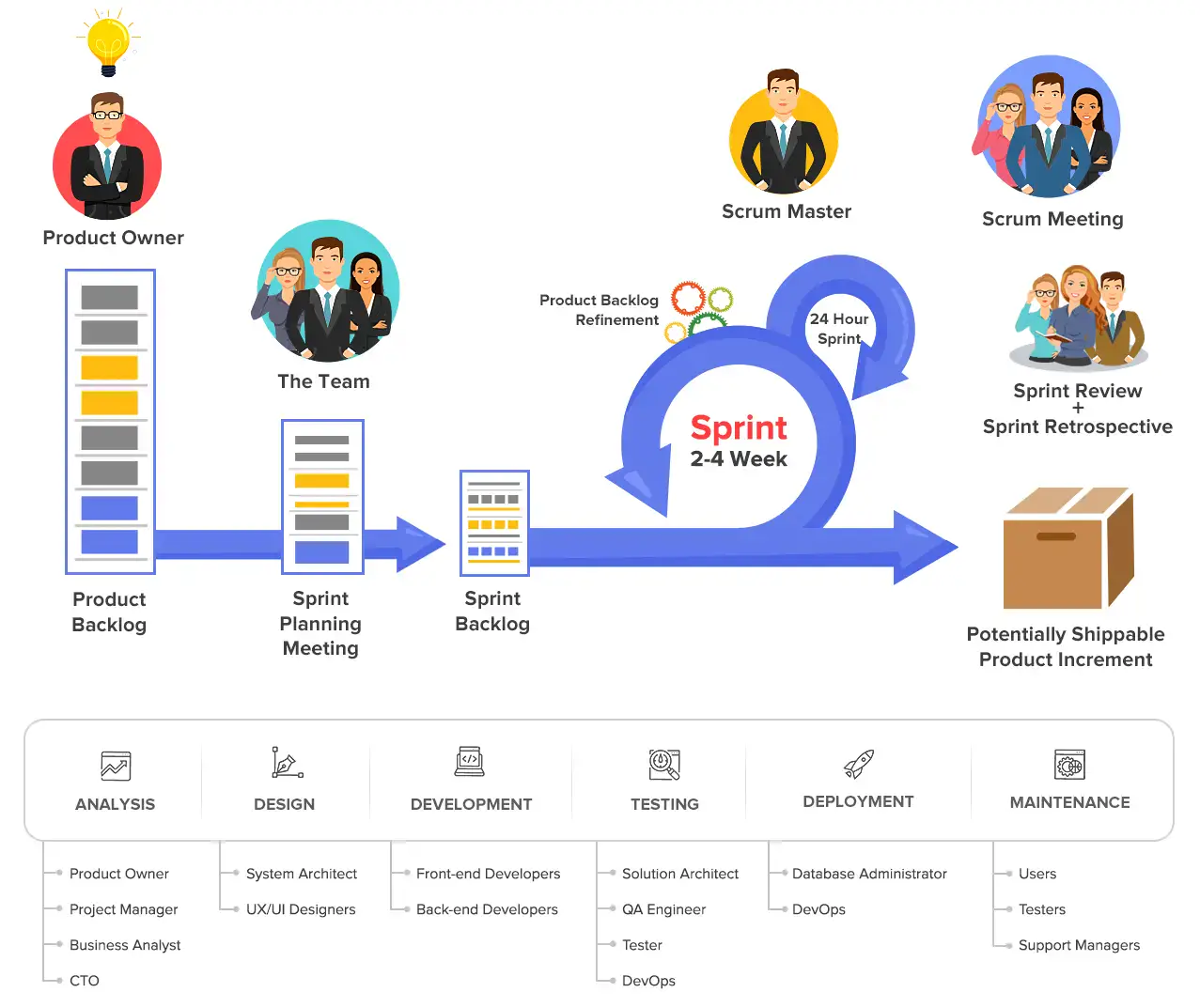Educational App Development Company
Transforming Digital Learning With Cutting-Edge e-Learning Applications.

Students Portal
Allow students to manage their courses, join live classes, and keep track of their attendance through an all-in-one student portal.

Admin Panel
Track your user acquisition, average engagement rate, and overall business growth through an easy-to-navigate admin dashboard.

Tutor’s Portal
Allow teachers to conduct live sessions, upload assignments, and interact with students using a dedicated Teacher’s portal.


Building Interactive e-Learning Platforms
Full-suite solutions encompassing strategy, design, development, implementation, and ongoing support services.
A Result-Oriented Educational App Development Process
Over the years, our e-learning app development experts have devised a fully-optimized development process to meet client requirements and build feature-packed ed-tech solutions to deliver an immersive learning experience. Irrespective of the project complexities, we follow our result-driven approach by implementing Agile and DevOps methodologies to ensure faster time-to-market..

Smart Learning Hub Empower Education
Your Path to Personalized Learning and Academic Success.
An educational app is a software application designed specifically to facilitate learning and educational activities. These apps can cover a wide range of subjects and topics, catering to different age groups and learning styles. They often include interactive features, multimedia content, quizzes, assessments, and other tools to engage users in the learning process.
Using educational apps offers several benefits, including:
- Accessibility: Users can access educational content anytime, anywhere, using their smartphones, tablets, or computers.
- Personalized learning: Many apps offer adaptive learning algorithms that tailor the content and pace of instruction to the individual needs and abilities of each user.
- Engagement: Interactive elements such as games, videos, and simulations make learning more engaging and enjoyable, leading to better retention and understanding of the material.
- Flexibility: Educational apps provide flexibility in terms of scheduling and pacing, allowing users to learn at their own convenience and progress at their own pace.
- Feedback and assessment: Apps often include built-in assessments and feedback mechanisms to help users track their progress and identify areas for improvement.
Key features to consider when developing an educational app include:
- Content libraries: A diverse range of educational materials, including text-based lessons, videos, images, and interactive activities.
- User profiles: Individual user accounts to track progress, save preferences, and provide personalized recommendations.
- Interactive exercises: Quizzes, puzzles, games, and simulations that reinforce learning objectives and encourage active participation.
- Progress tracking: Tools for users to monitor their progress, track completion of lessons or modules, and receive feedback on their performance.
- Social interaction: Features that enable collaboration and communication between users, such as discussion forums, peer-to-peer messaging, or multiplayer games.
- Accessibility options: Support for different learning styles and accessibility needs, including text-to-speech, closed captioning, and adjustable font sizes.
Educational apps can be integrated into traditional learning environments in several ways, including:
- Supplemental learning: Teachers can recommend educational apps as supplemental resources to complement classroom instruction and reinforce key concepts.
- Flipped classrooms: Apps can be used to deliver instructional content outside of class time, freeing up classroom time for hands-on activities, discussions, and collaborative projects.
- Differentiated instruction: Educational apps can support differentiated instruction by providing personalized learning experiences tailored to each student’s needs and abilities.
- Formative assessment: Apps can be used for formative assessment purposes, allowing teachers to gauge student understanding in real-time and adjust instruction accordingly.
- Blended learning: Educational apps can be integrated into a blended learning approach, combining online learning with traditional face-to-face instruction to create a more flexible and interactive learning experience.
Ready to proceed? Request your estimate today!
Ready to advance? Secure your quote or estimate instantly for services.































